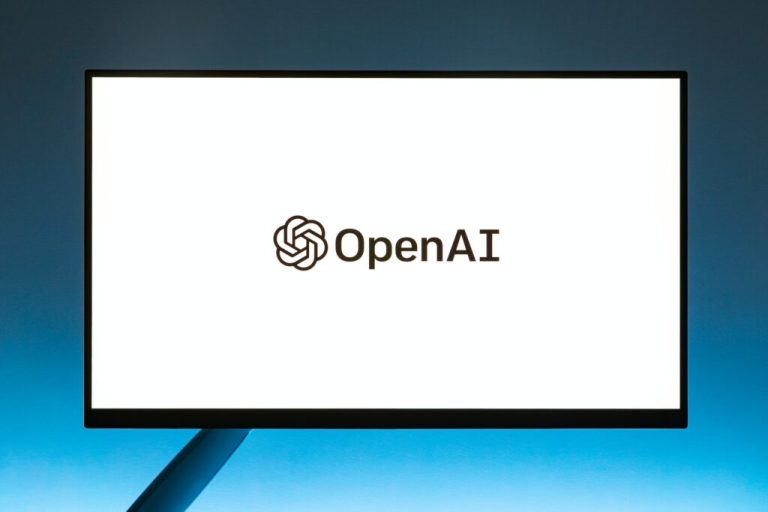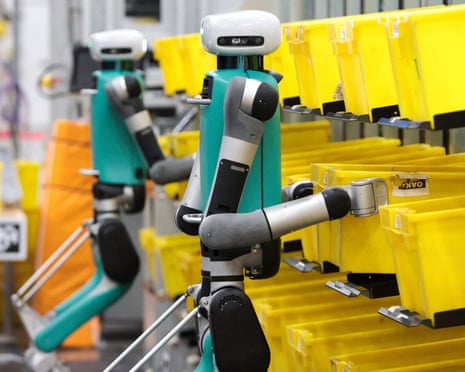Stanhope Secures £2.3 Million to Develop AI for Human-Like Decision Making
Stanhope AI, a company leveraging decades of neuroscience research to train machines in human-like decision-making, has successfully secured £2.3 million in seed funding, primarily from the UCL Technology Fund. This funding round also saw participation from the Creator Fund, MMC Ventures, Moonfire Ventures, Rockmount Capital, and prominent angel investors.
Founded as a spinoff from University College London, Stanhope AI boasts a strong leadership team comprising esteemed figures in neuroscience and AI. CEO Professor Rosalyn Moran, the former Deputy Director at King’s Institute for Artificial Intelligence, along with Director Karl Friston from the UCL Queen Square Institute of Neurology and Technical Advisor Dr. Biswa Sengupta of JP Morgan Chase’s AI and Cloud products division, underpin the company’s innovative approach.
Stanhope AI is pioneering the concept of ‘agentic’ AI, employing core principles of neuroscience to develop algorithms that emulate human predictive capabilities. Unlike traditional large language models (LLMs) that require extensive data to learn, Stanhope’s models autonomously interpret their environments, continuously refining their “world models” based on real-time information obtained through onboard sensors.
This novel approach is grounded in the neuroscience principle of Active Inference, which suggests that human brains consistently predict sensory data to minimize uncertainty. Traditional AI systems, in contrast, are confined to their training data, lacking the ability to learn dynamically. They require substantial processing power and energy resources for operation.
Stanhope AI’s Active Inference models are designed to be fully autonomous, allowing for continuous adaptation of predictions and minimizing uncertainties about their environment. This innovation not only enhances reasoning and decision-making akin to human cognition but also significantly reduces the computational size and energy demands of their models, enabling functionality in compact devices like drones.
Driving this groundbreaking methodology is the extensive research of its founding team into Active Inference and free energy principles. Professor Friston, a preeminent neuroscientist at UCL, has developed the Free Energy Theory Principle, which articulates how organisms strive to reduce uncertainty. Described as a concept as comprehensive as natural selection, this theory forms the bedrock of Stanhope AI’s initiatives, driven by Professor Moran’s expertise in Active Inference and Dr. Sengupta’s background in optimization and energy efficiency.
Currently, the technology is being tested through partnerships involving delivery drones and autonomous machinery, showcasing its real-world applicability and potential.
Innovation and the Royal Navy
In the long run, advancements in technology offer significant potential in areas such as manufacturing, industrial robotics, and embodied artificial intelligence (AI). Investment funds will be allocated to enhance the development of the company’s agency-based AI models and to implement the findings of their research.
Professor Rosalyn Moran, CEO and co-founder of Stanhope AI, shared her vision: “At Stanhope AI, we aim to connect neuroscience with artificial intelligence, paving the way for a new generation of AI systems capable of thinking, adapting, and making decisions like humans. We believe this technology will enhance the functionality of AI and robotics, making a real difference in practical applications. We trust in the mathematical foundations of our work and appreciate the support from investors like UCL Technology Fund, who possess a profound understanding of the scientific principles governing this technology. Their backing is vital for us as we strive to revolutionize the AI landscape.”
David Grimm, a partner at UCL Technology Fund, remarked, “While AI startups are currently attractive investment opportunities, few possess the expertise and scientific acumen that the Stanhope AI team has. Their unique methodology, which integrates insights from neuroscience with cutting-edge AI, presents a remarkable opportunity to innovate in the field and tackle some of AI’s most pressing challenges. We are excited to see the impact this team will create.”
Marina Santilli, associate director at UCL Business, added, “The potential of Stanhope AI’s approach to Artificial Intelligence is incredibly promising, offering prospects for both powerful and energy-efficient models. UCLB is thrilled to support the establishment of a company founded on decades of fundamental research at UCL, spearheaded by Professor Friston, focused on developing the Free Energy Principle.”
Interested in exploring more about AI and big data from industry experts? Visit the upcoming AI & Big Data Expo taking place in Amsterdam, California, and London. This comprehensive event will coincide with other key gatherings such as BlockX, Digital Transformation Week, and Cyber Security & Cloud Expo. Discover additional upcoming enterprise technology events and webinars powered by TechForge here.
Legal Actions and AI Developments
Reddit has initiated legal proceedings against Anthropic, alleging unauthorized data scraping associated with their AI technologies. This suit raises questions about data usage and privacy in artificial intelligence applications.
In a related update, Anthropic has introduced new AI models under the name Claude, specifically designed to bolster US national security efforts. This launch signifies a commitment to enhancing the safety and security infrastructure through advanced AI capabilities.
The UK is making strides in closing the skills gap in artificial intelligence by collaborating with NVIDIA. This partnership aims to enhance education and training programs to ensure the workforce is equipped with the necessary AI skills for future demands.
Moreover, the Kingdom’s ongoing digital transformation was showcased during the Smart Data & AI Summit. This event highlighted innovative strategies and advancements at the intersection of technology and data management.
In the rapidly evolving landscape of artificial intelligence, recent developments have drawn attention, particularly concerning data ethics and legal challenges. Reddit has initiated legal proceedings against Anthropic, focusing on allegations of unauthorized data scraping. This case not only raises questions about data ownership but also highlights the broader implications of AI on privacy and intellectual property rights.
Furthermore, the conversation around AI deployment continues to grow in importance, with businesses recognizing the necessity for effective governance and security measures. A recent discussion centered on the return on investment (ROI) in AI solutions, emphasizing a strategic shift from merely enabling technology to leveraging it for leadership and competitive advantage in various industries.
As organizations strive to harness the potential of AI technologies, the need for responsible and ethical application has never been more critical. Stakeholders are encouraged to engage in transparent dialogue regarding the influence of AI on society, ensuring a balance between innovation and ethical considerations.
Industry Categories
Explore various sectors that shape the global economy. Here are some key categories:
- Not for Profit
- Real Estate & Construction
- Retail
- Software & Cloud Services
- Technology
- Telecommunications
- Transportation, Shipping & Logistics
- Travel & Hospitality
- Wholesale
- Other
Select Your Country
Please choose your country from the list below:
Permissions
By submitting your email, you accept our Terms and Privacy Notice.
Comments
This section is for validation and should remain unchanged.






